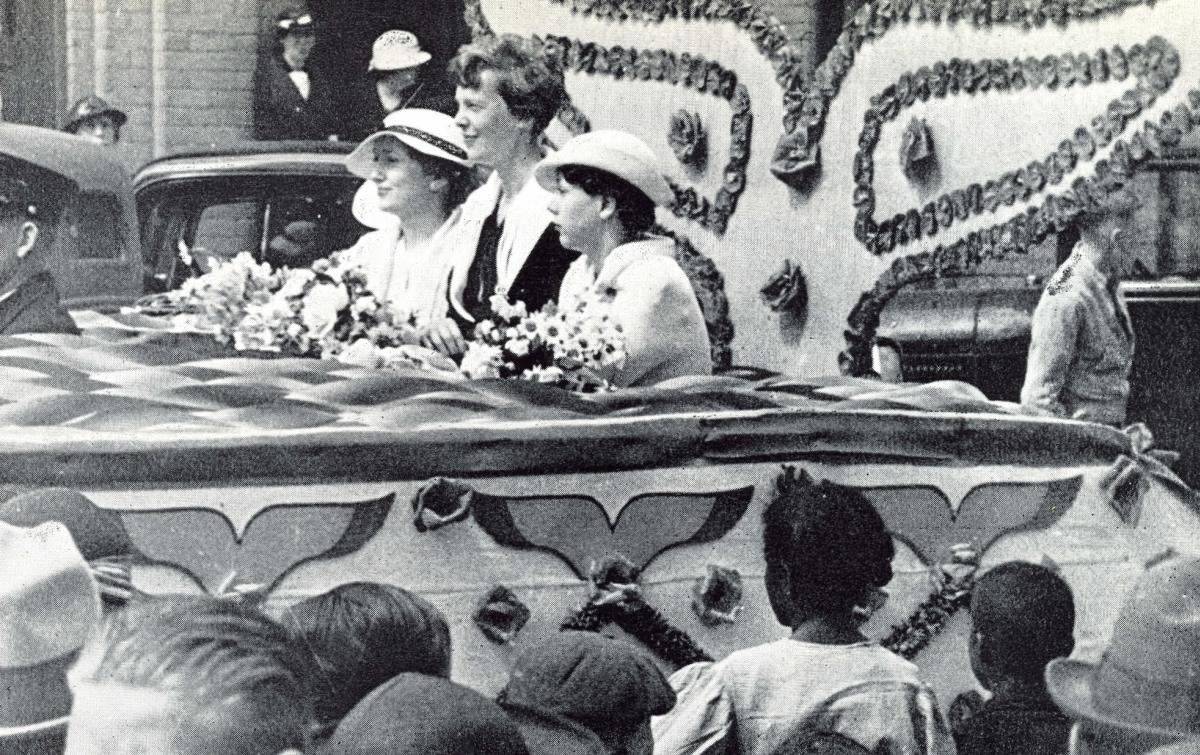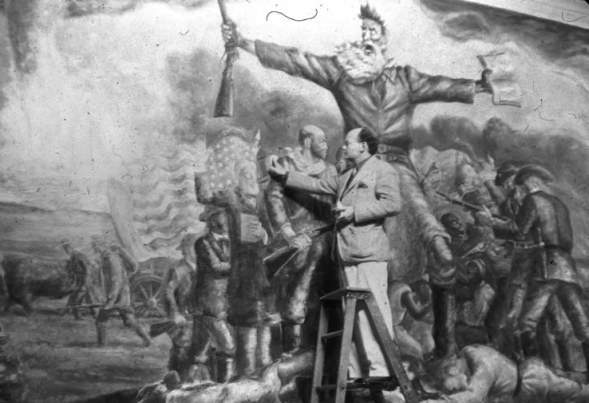
This story was originally published in the May/June issue of 1963. It's been lightly edited for accuracy.
“Courage is the price that life exacts for granting peace. The soul that knows it not, know no release from little things.”
On July 24 at Atchison, Kansas, ceremonies will be conducted, a stamp will be issued, talks will be made, plaques will be presented… all extolling the accomplishments of this poignant verse. In the program of the day, the occasion is designated as “Amelia Earhart Day,” as this city in northeast Kansas joins the United States Post Office Department in commemorating the memory of one of history’s outstanding women, Kansas-born Amelia Earhart Putnam, whose pioneering work and contributions to aviation, as well as science, medicine, industry and exploration, put her in the front ranks of the twentieth century. Greats, alongside such notable as Charles Lindbergh and John Glenn.
In a way it is a sad commentary on this nation that the issuance of the Amelia Earhart eight-cent commemorative airmail at Atchison on July 24 will be the first official government recognition of this world-renowned flyer since her untimely death 23 years ago. It may be that the world would not accept her tragic end, that for years people everywhere hoped and prayed that Amelia and her navigator, Fred Nooman, had been spared when their place disappeared over the vast Pacific on July 2, 1937 – it may be that this is the reason any posthumous honors have been so late in coming. At any rate, thanks to the persistence and urging of two women’s organizations: Zonta International and the Ninety-Nines, Amelia Earhart will finally get a measure of her just honors when the Earhart stamp is released at Atchison on the 65th anniversary of her birthday.
The achievements of Amelia Earhart are so spectacular – even today – that it is hard to believe that one person, especially a woman, could have done so much. She made history as the first woman to fly the Atlantic Ocean, first as a passenger in 1928, then on a solo venture in 1932, just five years after Lindbergh’s epic flight. As a result of the solo flight, Amelia was named the Outstanding Woman in America in 1932, was awarded the Harmon International Aviatrix trophy, presented the Cross of the Legion of Honor by France, and a grateful United States awarded her the highest of all flying honors, the Distinguished Flying Cross for “heroism of extraordinary achievement while participating in an aerial flight.” She was the only woman and only nonmember of the armed forces ever to receive the DFC. She was also the first woman to receive the Special Gold Medal of the National Geographic Society.
Among her many other first, Amelia was the first women to fly nonstop across the United States, the first person to fly solo from Hawaii to the continental United States, the first woman to pilot an autogiro and the first person to cross the United States in an autogiro.
In March 1937, accompanied by her navigator, Amelia started on a flight around the world. She flew from California to Hawaii, where the flight was interrupted when her place was damaged as she took off from Honolulu on the second leg of the journey. Undaunted, she returned to the mainland and prepared for another attempt to fly around the world.
On June 1, 1937, again with her navigator, Amelia took off for Miami, flying south to Puerto Rico and Brazil, across the Atlantic to Africa, and on to the Red Sea. She flew along the coast of India, on to Singapore, and Java, to Port Darwin, Australia, and then up to Lae, New Guinea. On July 2, she took off for Howland Island, a tiny speck in the vast Pacific, some 2,556 miles away. Between 2:45 am and 8:45 am the following day the Coast Guard cutter Itasca, on watch for the plane near Howland Island, picked up a number of garbled messages, which indicated the flight was in trouble. As far as it is known, the plane was never seen or heard from again.
Amelia Earhart’s activities outside her career in aviation also were distinguished. Few are aware of her untiring devotion and hard work in a hospital during World War I. She spent a number of years working in Boston and New York settlement houses and conducted English extension courses for Boston University in industrial communities in Massachusetts. She worked tirelessly for the abolishment of laws which discriminated against women and was vitally interested in careers for women.
Amelia wrote of her experiences in settlement work in these words: “The biggest job of the social worker is to give boys and girls the experience that will keep them young and that will inspire a zest for life.” Her interest in the scientific aspect of flying should not be overlooked, either. She became a consulting member of the faculty of Purdue University, specializing in aeronautics and careers for women. In 1931 she married publisher George Palmer Putnam, who never dissuaded her from her interests in aviation.
The spirit, personality and courage of Amelia Earhart can be singled out from a phrase from one on the four books she authored: “Someone must always go first.”
Ways to Stay Connected
More From Our Archives
View ALlFrom the Archives: Remembering John Steuart Curry
Jan 15, 2024Editor's Note: This article was originally published in the winter of 1992 by Don Lambert… Read More
From the Archives: Birth of the Helicopter
Jan 08, 2024Editor’s Note This article was originally featured in the winter issue of 1983 by Joan L… Read More
From the Archives: Kansas Outlaws
Oct 05, 2023The Sunflower State is known for its famous lawmen—but its infamous villains are legendary as… Read More
From the Archives: A Slice of Rural Life
Aug 24, 2023The Kansas Sampler Festival, the annual two-day gathering hosted by the Penner family on their farm… Read More
Discovering Lewis and Clark
Jun 26, 2023Editor's note: This article was originally featured in the winter issue of 2003. Quotes and… Read More









